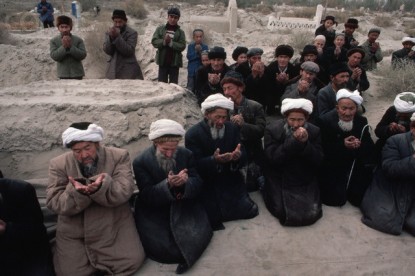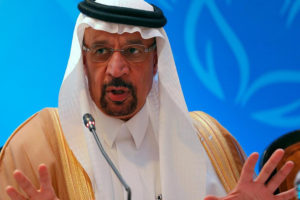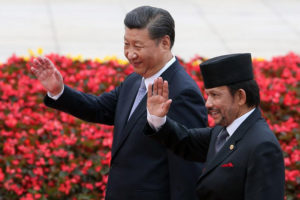
March 10 2011
With the echoes of revolutions in the Middle East is reaching as far as China, Beijing is softening tone in dealing with the Muslim minority in the western region of Xinjiang.
“I want to tell everyone that although their features may be different, their culture different, their personalities different, they are still the best members of China’s mixed ethnic family,” Zhang Chunxian, Xinjiang’s Communist Party chief, told reporters on the sidelines of China’s annual legislative session in Beijing on Tuesday, March 8, the Canadian Press reported.
“If we want long-lasting stability, we must ensure the people can really enjoy and benefit from the fruits of reform and opening up.”
Over the past two decades, Chinese officials sharpened authoritarian social control strategies to avoid the eruption of unrest in the Muslim-majority Xinjiang.
Last year, Urumqi, the capital of Xinjiang, erupted in violence when the mainly Muslim Uighur minority vented resentment over Chinese restrictions in the region.
In the following days, mobs of angry Han took to the streets looking for revenge in the worst ethnic violence that China had seen in decades.
The unrest left nearly 200 dead and 1,700 injured, according to government figures. But Uighurs affirm the toll was much higher and mainly from their community.
China’s authorities have convicted about 200 people, mostly Uighurs, over the riots and sentenced 26 of them to death.
Following the eruption of Middle East revolutions, Chinese officials added about 17,000 surveillance cameras to the tens of thousands already installed in Urumqi.
Condemning China’s policy on Uighur Muslims, Amnesty International said Monday that China has secretly prosecuted several Uighur intellectuals for peacefully expressing views critical of the Chinese government following the 2009 riots.
Moreover, it confirmed that the Chinese policies to control religion and undermine teaching in minority languages are some of the main reasons for instability in Xinjiang.
“These secret trials are creating an atmosphere of terror for Uighur intellectuals and writers living in China,” said Catherine Baber, Amnesty’s Asia-Pacific deputy director, referring to the jailing of Uighur webmasters and writers.
Discrimination
Zhang acknowledged that discrimination against Xinjiang’s Uighur Muslims was a problem that needed to be addressed.
“We still need some time to restore good feelings between the ethnic groups,” he said.
Though he announced no major policy changes, the softened tone in his comments suggested a less strident rhetorical approach in Xinjiang.
Zhang has taken a tougher line in the past, railing against Xinjiang’s “separatist sabotage activities” and saying they must be attacked “in all their forms.”
Xinjiang has been autonomous since 1955 but continues to be the subject of massive security crackdowns by Chinese authorities.
Rights groups accuse Chinese authorities of religious repression against Uighur Muslims, a Turkish-speaking minority of eight million, in Xinjiang in the name of counter terrorism.
Muslims accuses the government of settling millions of ethnic Han in their territory with the ultimate goal of obliterating its identity and culture.
And analysts say the policy of transferring Han Chinese to Xinjiang to consolidate Beijing’s authority has increased the proportion of Han in the region from five per cent in the 1940s to more than 40 per cent now.
Beijing views the vast region of Xinjiang as an invaluable asset because of its crucial strategic location near Central Asia and its large oil and gas reserves.
Duping the new softened tone, Zhang said the Communist leadership needs to do more to win the trust and support of Xinjiang’s people.
He highlighted main problems in the region as social instability, unbalanced growth and poor transportation links.
“The key is to win people’s hearts, and to have people’s support,” Zhang said.
“If all the people in Xinjiang support this regime, and they are confident in themselves, then (the region) can become solid as rock.”
He, however, ruled out that revolutions in the Middle East could spread to the Muslim-majority region.
“I have total confidence at the moment in Xinjiang’s stability,” he said.
“I have no worries at all. But I must learn the lessons, on a technical level, from the Middle East.”
Zhang also suggested that Xinjiang’s 21.6 million people, almost two-thirds of whom are minorities, needed to become more a part of mainstream Chinese society.
“This region must be a scientific one; the people must be modern citizens.”






